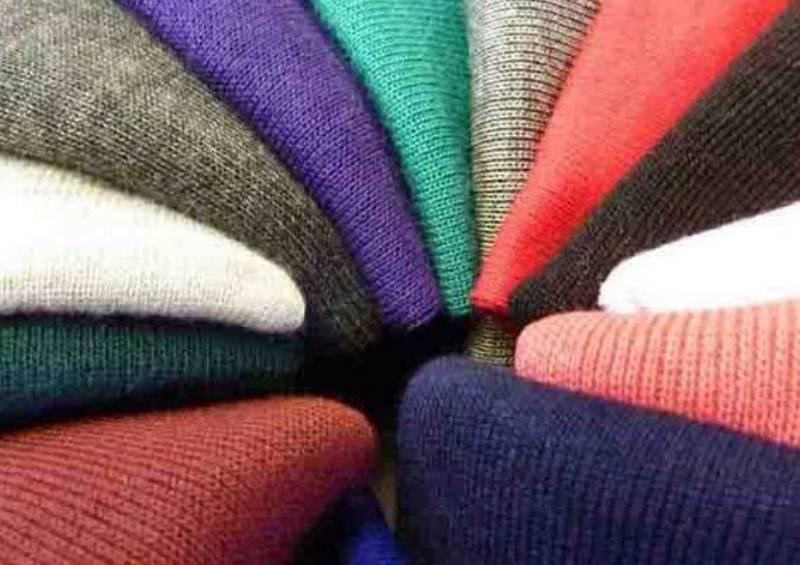Imposition Of Minimum Import Price On MMF Knitted Fabrics May Provide Big Relief To Domestic Industry

The domestic textile industry has welcomed the Union government’s recent decision of imposing a minimum import price of $3.5 per kg on the five HS lines of MMF knitted fabrics. The move followed unprecedented surge in imports of these categories of MMF knitted fabrics, creating a havoc-like scenario for the industry.
The industry has been raising concern on the increasing imports of certain MMF fabric categories, particularly HSN 60063200 (other knitted or crocheted fabric of synthetic fibre, dyed) imports of which increased at a CAGR of 14.7 per cent in value terms and 27.5 per cent in volume terms between FY2019 to FY2023. The imposition, which was notified effective March 16, 2024, will be valid till September 15, 2024.
“The worrisome part for the industry was the prices at which imports were taking place from few countries (particularly from China). The prices were significantly lower than the prevailing average market prices of the concerned commodities. The matter was raised during the MMF TAG meeting held on 18 January 2024, under the chairmanship of Piyush Goyal, Union Textile Minister, in which he assured to resolve the matter within three months. It is heartening and motivating for the industry to see the government working so actively towards resolving the issues of the domestic textile industry,” says Rakesh Mehra, Chairman, Confederation of Indian Textile Industry (CITI).
“The industry was concerned that after this notification there might be chances that certain importers may resort to mis-declaration of knitted fabrics under different CTH of chapter 60. However, the decision to clear the imported goods post-required testing will further strengthen the imposition of this notification and will surely benefit the domestic textile industry,” concludes Mehra.
“The textile hubs like Ludhiana, Surat and Erode have been struggling with this considerable increase in imports of MMF knitted fabrics. Despite an import duty of around 20 per cent, these imports have been under-invoiced to an extent that no manufacturers can compete on the price front. Manufacturers, catering to both domestic and export markets, have severely borne the brunt of this and were seeking some immediate intervention from the government. Now imposition of this minimum import price has provided the much-needed relief,” says GV Aras, former Director, ATE group and Strategic Advisor to the ITA Group (Germany).
Sanjay Jain, Managing Director, TT Ltd & past Chairman of CITI and NITRA, strongly feels that such an imposition was very much needed as the imports of these fabrics had gone up three times in the last one year and was disrupting the whole system due to massive under invoicing. “That is the reason we had urged the government to take this measure so that even if they under-invoice, they will have to pay this particular duty. This will lead to more revenue for the government also and will also protect the domestic industry,” adds Jain.
“The prompt intervention by the government by way of the notification will go a long way in restoring the confidence of domestic manufacturers who in the last couple of years have severely suffered due to these cheaper imports. It also shows that the government is now very much keen to support the domestic MMF industry which has lagged behind in the past. Along with this, a suggested measure would also be to implement Quality Control Orders for fabrics, garments and made-ups, which will help impede such imports going forward,” says S K Sundararaman, Chairman, The Southern India Mills’ Association (SIMA).
“No doubt, this is a good move. This will stop under-invoiced import of MMF knitted fabrics coming from China in big quantities. It is a much-needed step to prevent dumping from China. This will help the domestic knitwear industry to stabilize and grow now,” opines Prashant Agarwal, co-founder & Jt MD of Wazir Advisors.
As per industry sources, the total imports of MMF knitted fabric which stood at 319 MT per day during the year 2019-20, more than doubled during the period Apr-Dec 2023-24, with per day imports of 635 MT. The unit import price of “other knitted or crocheted fabrics of synthetic fibres – dyed” category was $2.35 per kg (Rs 168 per kg) during 2019-20. However, during Apr-Dec 2023-24, the import price saw a big dip of 30 per cent to Rs 1.42 per kg (Rs 118 per kg).
As against this, the actual cost of producing per kg of polyester filament yarn knitted dyed fabric (160 GSM) comes to around Rs 286 (around $3.50 per kg), where raw material cost is Rs 181.65 per kg; total variable cost including power and maintenance is Rs 54.35 per kg, while fixed cost comes to Rs 50 per cent.
Experts believe that based on these facts, one can easily infer the imports were happening at a predatory price, which the domestic manufacturer could never match. This severely affected the domestic manufacturers and put the jobs of several lakh people at risk, apart from affecting the revenue to the exchequer. The yarn price alone surpassed the imported fabric price, which confirmed the under-invoicing of products, exhibiting that there was dumping of these fabrics into the country, nullifying even the impact of the higher import duty of 20 per cent levied by the government to protect the domestic fabric manufacturers.
Knitting is an important segment of domestic textile value chain and knitted fabrics account for around 30 per cent of the total fabrics produced in the country. The segment is highly fragmented and provides jobs to several lakhs of people. The major knitting clusters in the country are Tirupur, Ludhiana, Kolkata, Surat and Bengaluru. The knitting segment caters to 50 per cent of the domestic apparel market.















